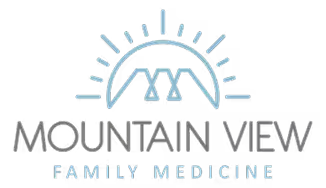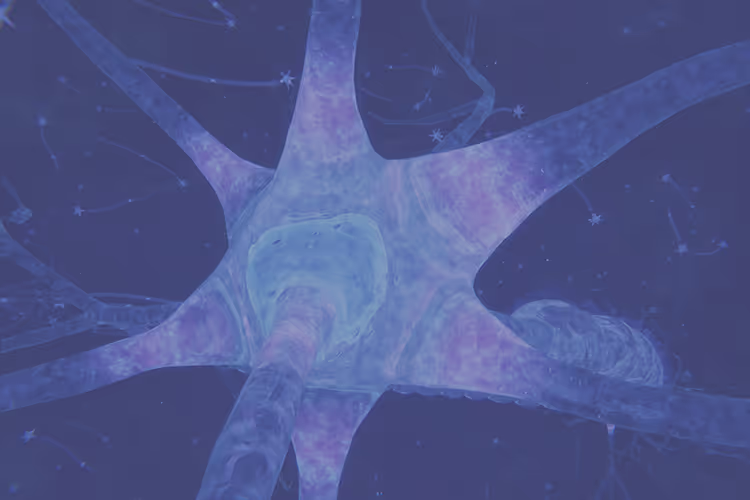Transforming the Chronic Pain Experience via Next-Generation Primary Care

Situation: Closing Major Unmet Needs in Chronic Pain Management
Dr. David Ottolenghi has practiced family medicine for more than 30 years. His values-based approach centers on helping people create their best health and most fulfilling life as defined by them, which helped him see that chronic pain in particular is deeply debilitating and often misunderstood.
A significant portion of Dr. Ottolenghi’s patient panel lives with persistent pain and discomfort from chronic conditions like back, neck, or pelvic pain as well as fibromyalgia, headaches, and irritable bowel syndrome (IBS). He noted: “Patients typically come to me after trying conventional options – medications, physical therapy, injections, even surgery – with limited relief.”
Without addressing the nervous system‑based drivers of chronic pain, patients felt stuck, clinicians felt helpless, and costs kept climbing as a disproportionate amount of visit time was spent on unresolved symptoms.
“Historically, the challenge has been a lack of an integrated neurologic framework that explains how pain persists even when the tissue has healed. We now understand that pain is not only a signal from the body; it is also an output of the brain. The brain learns patterns of pain over time, and these patterns can become wired into the nervous system. We experience the pain with our entire being, and we can change the way that we experience it.”
Background:
Transforming Chronic
Pain Management
in Primary Care
Decades of research shows chronic pain can be reduced through learning and practicing nervous system retraining strategies such as Reprocessing Therapy, Emotional Awareness and Expression Therapy, and Pain Neuroscience Education.
To help his team deliver this care and restore joy to the clinical encounter, Dr. Ottolenghi began referring patients to Lin Health, a virtual pain recovery program that combines pain science education, high‑touch coaching and neuroplastic recovery strategies, multidisciplinary clinical support, and hundreds of evidence-based digital resources.
“Lin Health helps patients recognize, rewire, and retrain these pain pathways. Because I’ve been actively seeking innovative ways to transform the current primary care model towards more value for both patients and providers, I saw Lin Health as an ideal partner.” - Dr. David Ottolenghi.
Assessment: Better Quality of Life for Patients, Lighter Clinician Load, Lower System Risk
Outcome
Impact on Primary Care Practice
Rapid access &
engagement
Almost 100 patients initially referred; 30% enrollment rate because the program is virtual and insurer‑covered with no waitlist
Clinical outcomes
Patients share consistently positive feedback; describe feeling understood, hopeful, and more in control of their pain; and many report reduced pain interference in daily activities
Practice efficiency
Lin manages patient onboarding, coaching, and progress reporting – expanding therapeutic options and freeing visit slots for preventive and acute care while keeping Dr. Ottolenghi fully informed
Continuity of care
Providers receive patient progress reports, allowing the care team to reinforce gains and adjust overall care plans at follow‑up visits by staying in the driver’s seat with the patient
Risk & cost profile
Non-addictive with no opioids, no invasive procedures, no harm nor side effects, while aligning with payer goals to curb high‑cost, low‑value interventions
Rapid access & engagement
Almost 100 patients initially referred; 30% enrollment rate because the program is virtual and insurer‑covered with no waitlist
Clinical outcomes
Patients share consistently positive feedback; describe feeling understood, hopeful, and more in control of their pain; and many report reduced pain interference in daily activities
Practice efficiency
Lin manages patient onboarding, coaching, and progress reporting – expanding therapeutic options and freeing visit slots for preventive and acute care while keeping Dr. Ottolenghi fully informed
Continuity of care
Providers receive patient progress reports, allowing the care team to reinforce gains and adjust overall care plans at follow‑up visits by staying in the driver’s seat with the patient
Risk & cost profile
Non-addictive with no opioids, no invasive procedures, no harm nor side effects, while aligning with payer goals to curb high‑cost, low‑value interventions
Clinical Workflow
1. Patient referral
from Dr. Ottolenghi’s team, including support from Lin to identify relevant patient populations
2. Enrollment & Eligibility
Lin reviews insurance coverage and helps the patient schedule a diagnostic visit with a Lin physician to confirm treatment relevance
3. Coach Matching & Scheduling
Patient chooses their Pain Recovery Coach and schedules up to 4 one-to-one video sessions per month centered around a new and empowering approach to pain that’s applicable every day
4. Treatment
The coach personalizes an evidence‑based Care Plan in partnership with the patient, with asynchronous messaging in-between visits and always-on access to digital care resources
“Lin Health gives patients a structured, scientifically informed way to tap into their own healing potential. There’s virtually no downside, and the upside - for patients and for our clinic - is enormous.”
Recommendation: Dr. Ottolenghi’s Message to Fellow Primary Care and Specialty Clinicians
“Lin Health teaches personal agency, responsibility, and daily self-directed healing… It also creates continuity for when they return to our clinic, reinforcing the work they’re doing and building a stronger therapeutic line between the patient, the provider, and the specialist.”
Disposition Plan:
Referring patients to Lin Health equips clinicians with an evidence‑based, scalable solution that improves patient quality of life, reduces reliance on pharmacologic or procedural interventions, and preserves precious clinic time – while filling gaps in disparate care.









